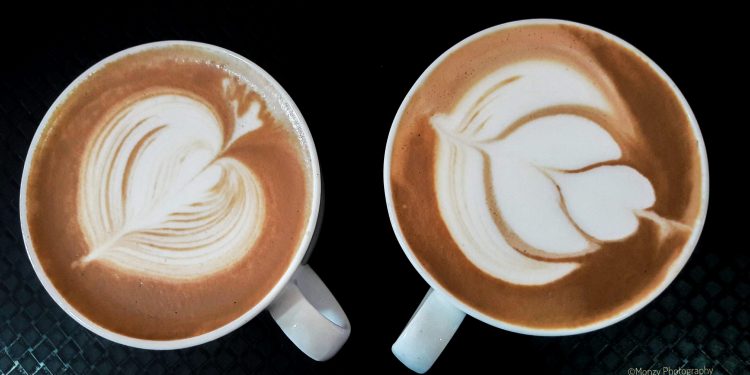From people being awarded capital punishment for drinking it to becoming one of the most consumed drinks across the globe, coffee, the aromatic brew, has traversed a long distance.
Yes, in the 16th Century, Sultan Murad IV in Turkey put restrictions on drinking coffee and any one found violating the law was beheaded. Reason: His brother Sultan Osman II’s assassination was planned at a coffee house. As alcohol was strictly forbidden in Islam, coffee houses were the favoured hangout zones in the Turkish society at that time. People not only used coffee houses for exchanging information, they were also the breeding ground of many revolutions.
Back home, coffee houses remained nerve centres for Communists and socialists movements for generations playing a very important role in Indian politics. In Calcutta, Indian Coffee House, a restaurant chain, was known as the hub of intellectual debates with scholars, editors, artists and writers like Ritwik Ghatak, Narayan Gangopadhyay, Sunil Gangopadhyay, Sanjeev Chattopadhyay, Samaresh Majumdar, Satyajit Ray, Amartya Sen, Mrinal Sen and Aparna Sen being its regular visitors.
But these are the things of the past now which was summarised by Manna Dey’s famous song Coffee House’er shei adda’ta aaj aar nei (That Coffee House adda is long gone now).
Cut to the present days, coffee is now considered the first beverage consumed in the morning and can be relied upon for energy to help people get through the day. This apart, people prefer to meet friends at a cafe or to have a business meeting while there can’t be a greater option for the urban lovers to catch up with their significant ones. But most important is the beverage’s health benefits.
Aniket, a fitness coach from Pune who is certified from International Sports Science Association (USA), says, “The smell of coffee has always anchored me to it since I was a kid. Fast forward, today I have around 3-4 cups of coffee daily as I love the taste and aroma of this smoky drink. Unlike other drinks, it has an almost negligible calorie which makes it perfect for your weight loss goals. It has an appetite suppressing effect too.”
The coffee addict continues: “People are addicted to coffee but unlike any other addictions coffee can actually be beneficial (3-4 cups a day) for health. Daily consumption of coffee has shown to improve liver health and address other health issues. Also, people consuming 3 to 4 cups of coffee have shown to dodge death from all causes as well as from heart disease, research has shown this . It’s more than just a coffee, it’s a health drink.”
Since he is an avid coffee drinker, he would love spending and experiencing different aromas and tastes of coffee, says Aniket, adding he always prefers a lavish place for this drink to sip and enjoy it with his favourite book.
Ankita Tripathy, a Bachelor in Agriculture from Bhubaneswar, says her love for coffee is unending. “In comparison with other drinks, it is cheaper, can be made instantly, relaxing and most importantly, it lifts my mood within a span of seconds.”
But people often get addicted to coffee. On this she says, “Addiction is always bad. One needs to know how to control cravings for a certain thing. Just don’t fall prey to it. Coffee contains caffeine and on moderate consumption it benefits with weight loss and alertness but, it has its own drawbacks too. Restlessness, insomnia, low blood pressure, dehydration and a lot more are complementary with the joy of getting addicted to coffee.”
Ankita says she is always up for a cup of coffee at a tapri. “I’m a commoner and don’t prefer flamboyancy although both taste exactly the same but inexpensive coffee at a local tapri with a bunch of friends gossiping is worth it,” she quips.
Debunking myths
Myth: Caffeine Has No Health Benefits-
Fact: Limited evidence suggests caffeine may also reduce the risk of Parkinson’s disease, liver disease, colorectal cancer, Type 2 diabetes, dementia.
Myth: Coffee increases the risk of osteoporosis, heart disease, and cancer.
Fact: A limited consumption of coffee around 200gms doesn’t do any damage according to studies.
Myth: Caffeine is likely to cause insomnia-
Fact: It’s true that the human body quickly absorbs caffeine. But it also gets rid of it quickly. A cup of coffee or two in the morning won’t interfere with sleep at night. Sleep won’t be affected if you don’t consume caffeine at least six hours before going to bed.
Myth: Coffee dehydrates you
Fact: Coffee doesn’t dehydrate you more than any other liquid that makes you pee.
Myth: Coffee makes you gain weight
Fact: Black coffee doesn’t make you gain weight. Now, if you add lots of milk, sugar, and enjoy it with cakes… that’s a different story
World’s Costliest
No, it’s not Luwak Coffee, prepared from the poops of the palm civet, the most expensive coffee in the world in 2022. The costliest coffee is made from Arabica beans by the Black Ivory Coffee Company in Thailand. Similar to civet coffee, it is prepared by elephants that consume the Arabica coffee beans and process them during digestion. The excreted beans are then roasted and processed into coffee, the perfect brew to wake you up. Their stomach acid breaks down the bean proteins and provides a characteristic robust flavour to the drink. This coffee is rare and expensive because only a small amount of beans are available at any time. One needs to shell out about $50 for a cup of black ivory coffee which makes it currently the most expensive coffee in the world.






































